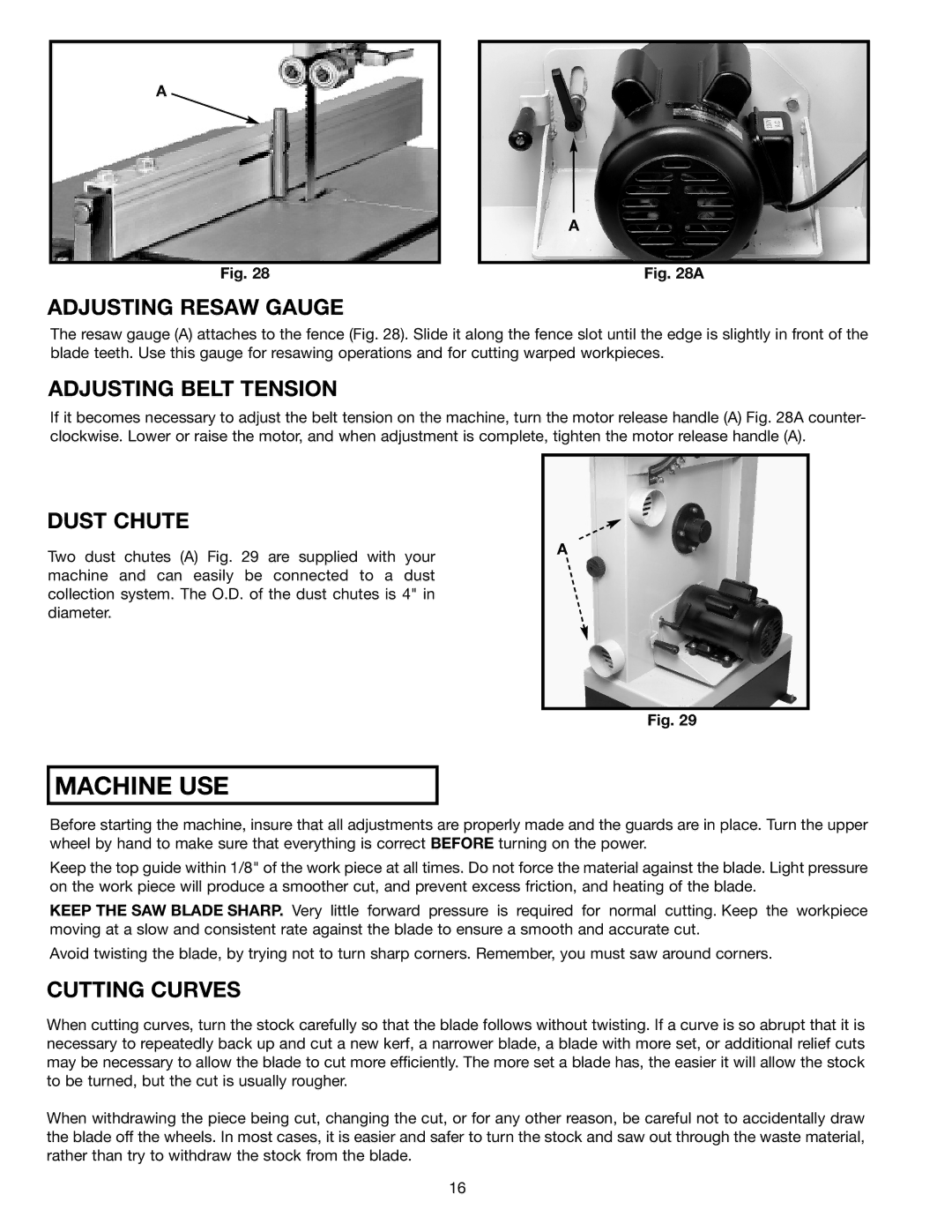
A
Fig. 28
A
Fig. 28A
ADJUSTING RESAW GAUGE
The resaw gauge (A) attaches to the fence (Fig. 28). Slide it along the fence slot until the edge is slightly in front of the blade teeth. Use this gauge for resawing operations and for cutting warped workpieces.
ADJUSTING BELT TENSION
If it becomes necessary to adjust the belt tension on the machine, turn the motor release handle (A) Fig. 28A counter- clockwise. Lower or raise the motor, and when adjustment is complete, tighten the motor release handle (A).
DUST CHUTE
Two dust chutes (A) Fig. 29 are supplied with your machine and can easily be connected to a dust collection system. The O.D. of the dust chutes is 4" in diameter.
A
Fig. 29
MACHINE USE
Before starting the machine, insure that all adjustments are properly made and the guards are in place. Turn the upper wheel by hand to make sure that everything is correct BEFORE turning on the power.
Keep the top guide within 1/8" of the work piece at all times. Do not force the material against the blade. Light pressure on the work piece will produce a smoother cut, and prevent excess friction, and heating of the blade.
KEEP THE SAW BLADE SHARP. Very little forward pressure is required for normal cutting. Keep the workpiece moving at a slow and consistent rate against the blade to ensure a smooth and accurate cut.
Avoid twisting the blade, by trying not to turn sharp corners. Remember, you must saw around corners.
CUTTING CURVES
When cutting curves, turn the stock carefully so that the blade follows without twisting. If a curve is so abrupt that it is necessary to repeatedly back up and cut a new kerf, a narrower blade, a blade with more set, or additional relief cuts may be necessary to allow the blade to cut more efficiently. The more set a blade has, the easier it will allow the stock to be turned, but the cut is usually rougher.
When withdrawing the piece being cut, changing the cut, or for any other reason, be careful not to accidentally draw the blade off the wheels. In most cases, it is easier and safer to turn the stock and saw out through the waste material, rather than try to withdraw the stock from the blade.
16
